| Practical Information |
Conference venue:
University of Ghana
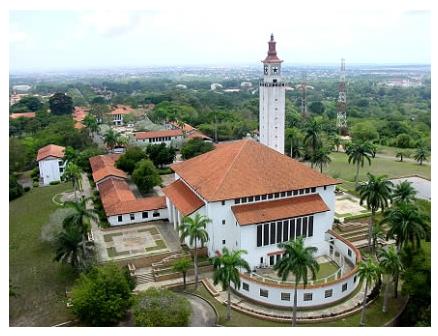
Official letter of invitation:
Should you require an official letter of invitation to obtain your visa, please contact Ms. Eccles Andoh at Ecclesandoh@ug.edu.gh.
Please note, however, that these letters are only to facilitate your visa procedures when necessary. For some countries, a confirmation of registration with payment may be required by the authorities. In such countries where confirmation is required, we strongly suggest that you register at your earliest convenience.
- Copy of passport
- Flight itinerary
- Hotel reservation
The deadline for VOA submission is 1 October 2017.
Airport Pickup:
All recommended hotels have ground transportation from airport.
Climate and weather:
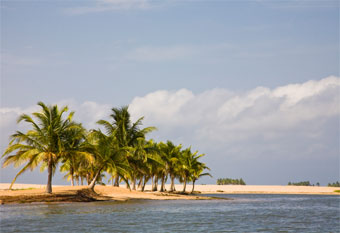 Ghana is located in the tropical area. Average temperatures range from 18° - 32 ° C throughout the year.
Ghana is located in the tropical area. Average temperatures range from 18° - 32 ° C throughout the year.
Apr–Jun The heaviest of the rainy season.
Nov–Mar The dry and easiest season to travel.
Currency:
Ghana’s currency is the Ghana Cedi (GHC). The rates fluctuate periodically. As at 1st March 2017 the exchange rates are:
1 USD equals 4.4 GHC
1 EUR equals 4.9 GHC
Electricity:
Ghana uses the 220-240v-electricity and 2- or 3-leg plugs (flat & round plugs). If this is different from your country, you can find a universal adapter/converter at departmental or retail stores.
Food and drink:
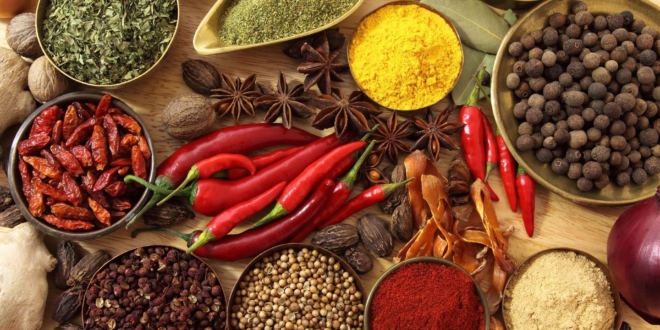 Eateries have dishes ranging from local Ghanaian spicy foods to continental dishes. There are Turkey, Chinese, and French cuisines at specific places within Accra.
Eateries have dishes ranging from local Ghanaian spicy foods to continental dishes. There are Turkey, Chinese, and French cuisines at specific places within Accra.
Transportation:
Taxis on the go (alone): It is recommended to negotiate fares to get the best deal before boarding to destination.
Uber Accra: You may get a fare estimator for Uber ride in Accra. www.uber.com/en-GH/cities/accra
Tourist attractions and travelling outside Accra:
The link to explore Ghana: www.blastours.com/west-africa-travel-destinations/regions-of-ghana/attractions-of-ghana
Accra is a sprawling city with about 2 million residents with mixture of modern buildings, shanty towns, occasional castle and lively markets. The hub is around the Makola Market, just south of the market is the Atlantic Ocean.
Accra’s Main Attractions include:
The National Museum: This museum has wonderful exhibitions about Ghana’s culture and history including the slave-trade, and Ashanti Kingdom.
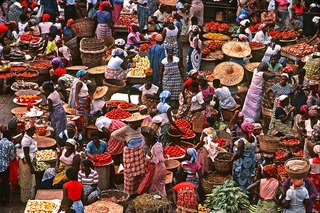 Makola Market: it is colourful, bustling, and you can buy absolutely everything. It is one place you can never miss in Accra.
Makola Market: it is colourful, bustling, and you can buy absolutely everything. It is one place you can never miss in Accra.
James Fort: This is situated in the suburb of Jamestown. It used to be one of the monuments of the Europeans and slavery. Presently it is a prison.
Christianborg Castle: It is unique among the castles and forts in Ghana as it served as Government House during various periods in the 19th centuries and continues to play that role today.
Beaches: There are some nice beaches in and around Accra, with Labadi Beach, Coco Beach, and Bojo Beach being the most visited beaches in Accra.
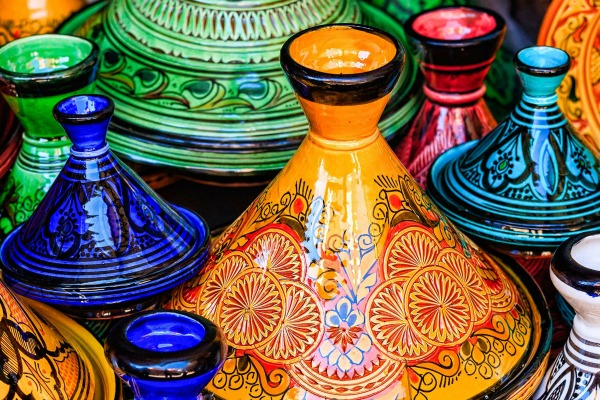 The Arts Center: It is a great place to shop for handicrafts but you must also prepare to bargain to get the best deal.
The Arts Center: It is a great place to shop for handicrafts but you must also prepare to bargain to get the best deal.
Kwame Nkrumah Mausoleum: It is the last resting place of the first President of Ghana, Osagyefo Dr. Kwame Nkrumah. It is dedicated to him for his outstanding campaign to liberate Ghana (by then Gold Coast) from colonial rule on 6th March, 1957.



